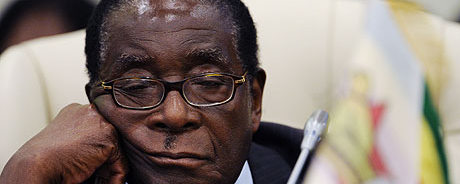
WITH disputes over electoral procedures increasing, the country has over the years witnessed a number of court cases filed in a bid to resolve political clashes, an indication that Zimbabweans had many problems with political processes.
Report by Nduduzo Tshuma
While Zimbabweans have resorted to the courts, a number of cases remain unsolved, particularly the petitions after the 2000 elections, where the MDC accused its rival, Zanu PF of rigging.
But in recent years, the number of court cases has been coming thick and fast.
The most recent flurry of cases sought to stop President Robert Mugabe from declaring July 31 as the date for elections.
Probably the most interesting case is that of Jealousy Mawarire, who sought to compel President Robert Mugabe to set June 29 as the date for elections.
Long-running cases include MDC-T deputy organising secretary Abednico Bhebhe, Norman Mpofu and Njabuliso Mguni going to the courts to have Mugabe proclaim by-election dates for three constituencies in Matabeleland, following their sacking from MDC.
The court applications have raised a lot of debate on whether Zimbabweans have given up on the democratic channels and resorted to the courts as their last resort for their rights to be observed. However, Bulawayo lawyer Sindiso Mazibisa said the court applications were not a means of abandoning the democratic spaces, but instead expanding them.
- Chamisa under fire over US$120K donation
- Mavhunga puts DeMbare into Chibuku quarterfinals
- Pension funds bet on Cabora Bassa oilfields
- Councils defy govt fire tender directive
Keep Reading
“We need a balance between the role of the Executive, Legislature and also the Judiciary,” he said.
“To me it is a welcome development as enunciated in the Indian constitutional jurisprudence that there are certain essential things that the Executive cannot do and now we know for certain the first Constitutional case is that there are certain things that the Executive can be ordered to do.
“It is a welcome development in the democratic space because it means the three arms of government play a critical role in balancing the interests and the democratic principles that any standard State can stand for.
“It is not abandonment of democracy, but actually an expansion of democracy in that the court has a right to review any Executive decision and measure it against the Constitution.”
Commenting on the Mawarire case, Mazibisa said the ushering in of the new constitutional dispensation has thrown the political game into disarray.
“The Mawarire case has opened a Pandora’s Box that any person who feels aggrieved is free to approach the court and the court has stated that kind of person has legal standing to question any Executive and Legislative standing,” he said.
Mazibisa said the judgment restated a position that the Executive should not have free reign, “as what Prime Minister Morgan Tsvangirai is proposing that the issue of setting of elections becomes an executive issue between the President, the Prime Minister and all the so called or alleged principals”.
Habakkuk Trust chief executive officer Dumisani Nkomo said every Zimbabwean had a right to approach the courts in matters that they felt they were aggrieved.
“The government should also activate enforcement mechanisms that ensure the rights of people are respected, like the Human Rights Commission and related instruments,” he said.
“Once activated, those instruments will play a complementary role to the already existing ones in ensuring that the rights and wishes of the people are respected.”










